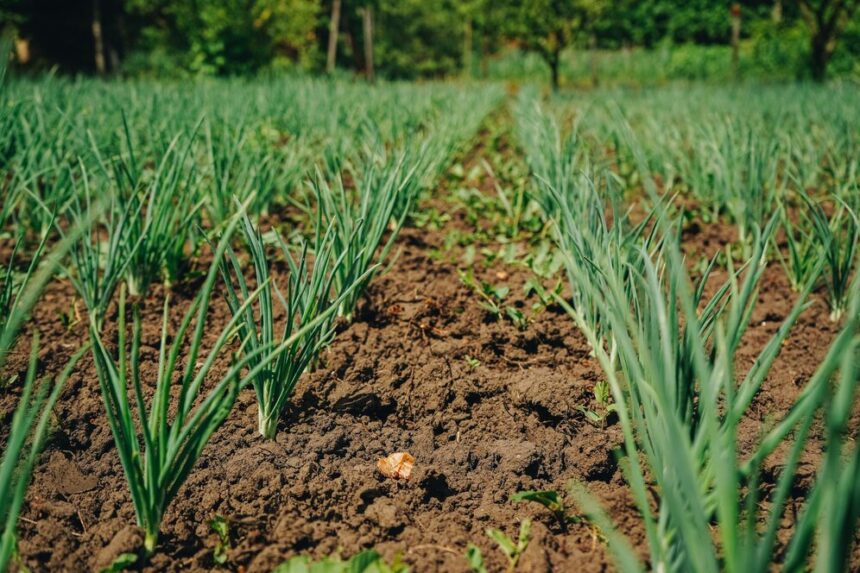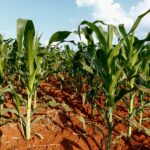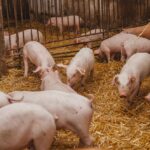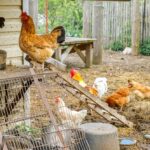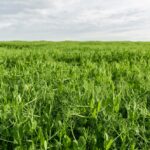The Northern Cape, with its vast and semi-arid landscape, presents unique challenges and opportunities for agricultural production. One of the most profitable and widely grown crops in the region is onions. Due to the climate and soil conditions, understanding the optimal planting season is essential for achieving high yields and quality produce. In this article, we explore the best time to plant onions in the Northern Cape for maximum success.
1. Climate Considerations in the Northern Cape
The Northern Cape experiences a hot, dry climate with summer temperatures regularly exceeding 30°C. The province has limited rainfall, and irrigation plays a significant role in successful farming. Onions are a cool-season crop, meaning they thrive in moderate temperatures and require careful water management, especially during their early growth stages.
Planting onions at the right time helps ensure the plants avoid extreme heat stress, which can hinder their development and lead to poor bulb formation.
2. Ideal Onion Planting Time
The best time to plant onions in the Northern Cape is typically during the autumn to early winter months, from March to May. This planting window takes advantage of the cooler weather, which is ideal for onion seedling establishment. Onions are typically ready for harvest in about 4 to 6 months, so planting in March to May ensures that the bulbs mature before the hottest summer months, preventing heat stress during critical growth stages.
- Autumn (March to April): Planting in early autumn allows onions to establish their roots during the cooler months, promoting strong growth and better bulb development. The weather conditions during this period are typically more moderate, which is beneficial for young onion plants that are sensitive to extreme temperatures.
- Late Autumn to Early Winter (May): Late planting, especially in May, can still yield good results, though the growing season may be slightly extended. Onions planted in May will mature closer to summer but can still avoid the worst of the heat with proper water management and irrigation.
3. Temperature Considerations
Onions thrive in temperatures between 13°C and 24°C. Planting during the cooler months of the year allows the crop to benefit from mild temperatures, which are conducive to good growth. It also avoids the high summer temperatures, which can cause bolting (premature flowering), a common issue for onions when temperatures exceed 30°C.
- Night-time temperatures: Night-time cooling is also critical, as it helps the onions rest and develop properly. In the Northern Cape, planting in autumn or early winter allows onions to benefit from cooler night temperatures, which promote stronger bulb development.
4. Soil Preparation and Fertilization
Soil preparation is key to successful onion farming. Onions prefer well-drained, loamy soils rich in organic matter. Before planting, it’s important to prepare the soil by tilling and incorporating organic compost or well-rotted manure. A soil test is recommended to determine the pH level, which should ideally be between 6.0 and 7.0.
- Fertilization: Onions are heavy feeders and require adequate nutrients to grow strong bulbs. Fertilizer should be applied based on soil test results, with a focus on nitrogen, phosphorus, and potassium. Nitrogen helps with leaf growth, while phosphorus and potassium promote bulb formation and overall plant health.
5. Water Management
Proper irrigation is critical in the Northern Cape, where water is a scarce resource. Onions require consistent moisture, especially during germination and early growth stages. Drip irrigation is the most efficient method, as it delivers water directly to the root zone, reducing water waste and evaporation.
It is important to avoid overwatering, which can lead to diseases like downy mildew and root rot. During the growing season, the soil should be kept moist but not soggy. Reducing irrigation as the onions approach maturity helps in the curing process and prevents bulb splitting.
6. Pest and Disease Control
In the Northern Cape, onion crops can be susceptible to pests such as onion flies, aphids, and thrips, as well as diseases like mildew and fusarium. To prevent these issues, farmers should regularly scout their fields for early signs of infestation and apply appropriate pest control methods when necessary.
- Crop Rotation: Practicing crop rotation with non-allium crops (such as legumes or brassicas) helps reduce the buildup of pests and diseases in the soil.
- Resistant Varieties: Planting onion varieties that are resistant to common pests and diseases can also be beneficial.
7. Harvesting Time
Onions typically take about 4 to 6 months to reach maturity, depending on the variety and planting time. In the Northern Cape, onions planted in March to May will be ready for harvest around August to October, just before the peak of summer heat.
- Signs of Maturity: Onions are ready to harvest when the tops begin to fall over and the outer skins turn brown and papery. At this point, the onions should be carefully pulled from the ground and allowed to cure in a dry, cool, and well-ventilated area.
The best time to plant onions in the Northern Cape is during the autumn to early winter months (March to May). This planting window allows onions to establish strong roots in cooler temperatures and avoids the intense summer heat that can stunt their growth and lead to bolting. By ensuring proper soil preparation, water management, and pest control, farmers in the Northern Cape can achieve high-quality onion yields that are well-suited for the region’s climate.
Join 'Farmers Mag' WhatsApp Channel
Get the latest Farming news and tips delivered straight to your WhatsApp
CLICK HERE TO JOIN
